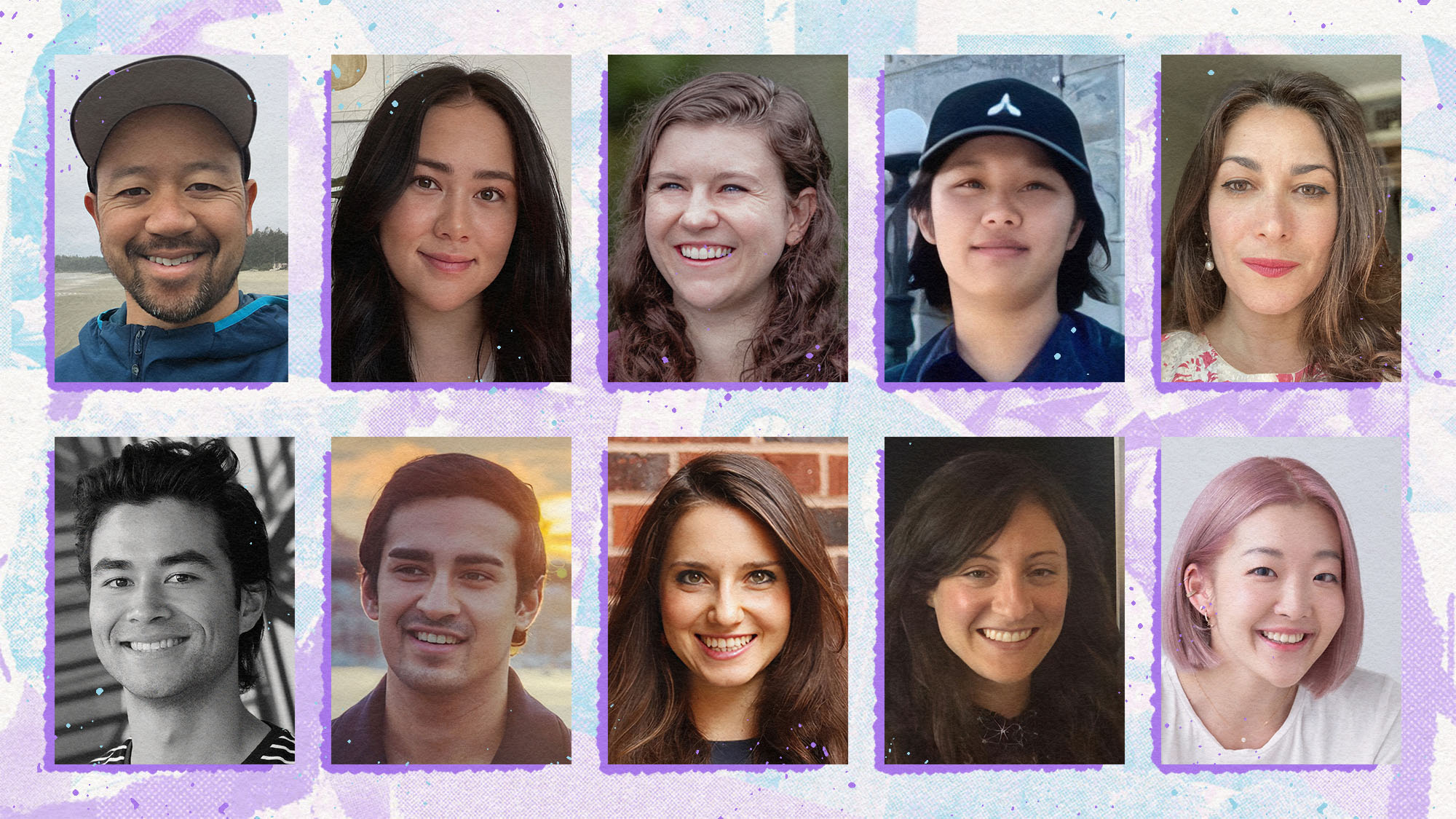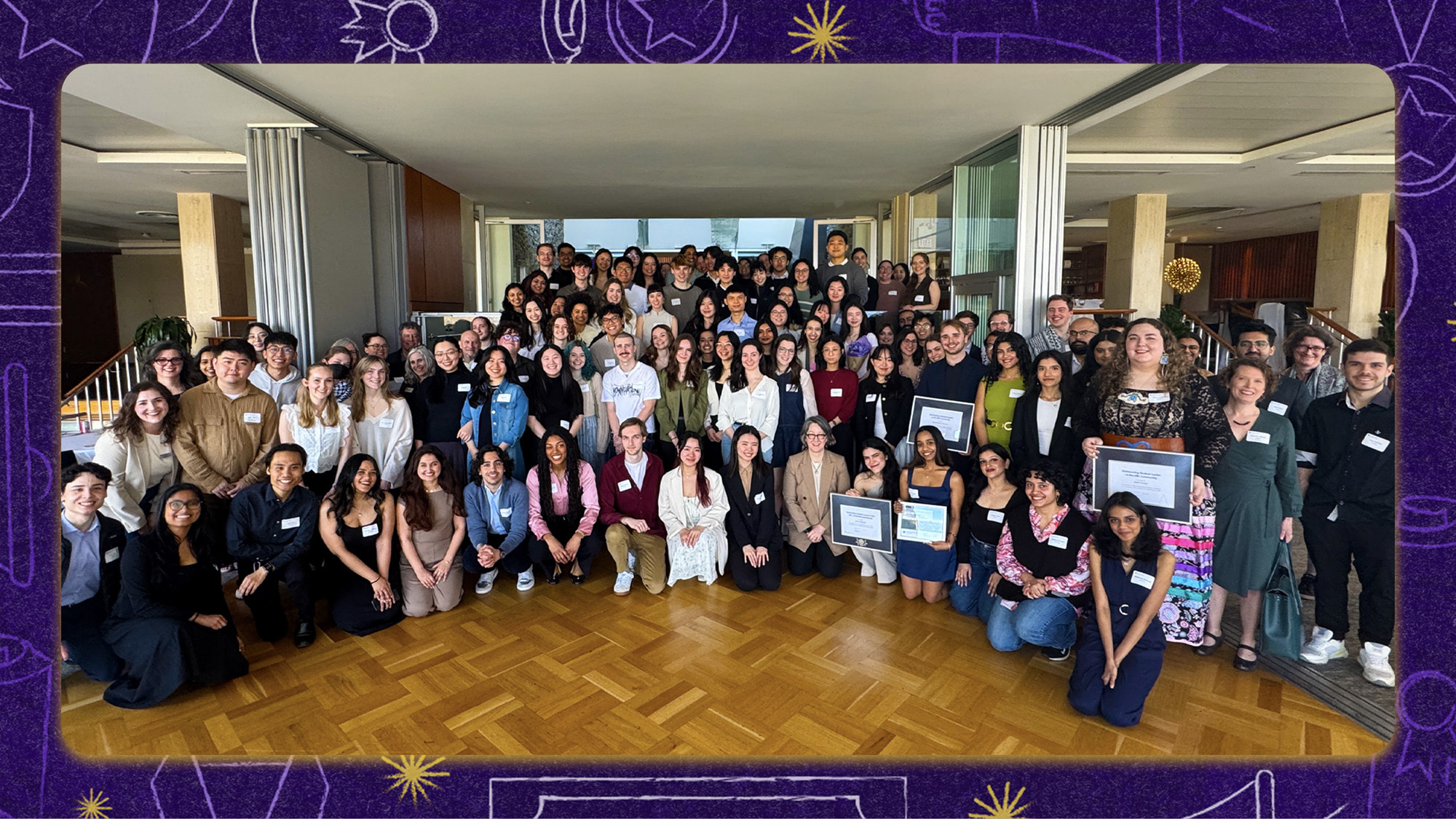

If the question “What are you going to do after you graduate?” makes you feel a little overwhelmed—you’re not alone.
Figuring out your next steps isn’t always straightforward— it’s a mix of excitement, uncertainty, and sometimes a few detours along the way. But here’s the good news: you don’t have to have it all figured out now. To help you navigate your way through starting your career, we asked Arts Alumni to share their best career advice— the kind they wish they’d heard as students. Here are their top 10 tips, plus helpful resources to support you along the way.
1. Find what drives you
Balancing your passions with practical concerns like finances and job security isn’t always easy. But your heart is a powerful compass—find where your skills, interests, and values align.
“What are you good at? How can I be of value to this world? How do I balance those two things with what I enjoy doing, and what I am passionate about? Once you nail those questions down, a career naturally ensues from the choices to follow.”
Part of that process is discovering what makes you stand out.
“The best professional advice I was given is find your niche,” says Faisal Paktian (BA’17). “What is it about you specifically that would benefit the place you want to work in? Everyone brings their own unique addition to a workplace.”
And if you don’t have it all figured out yet, that’s okay.
“There’s value in taking the time to find what interests you” says Kavita Dau (BA’21). “I think that for most people, who don’t innately have something they feel ‘destined’ to do, exploration of potential interests is what undergrad is all about.”
2. It’s not “networking”—it’s just talking
Networking can feel intimidating, but at its core, it’s just about building relationships. People are often more willing to help than you think—you just have to start the conversation. Friends, professors, alumni, and even coworkers you grab coffee with can open doors in unexpected ways.
“A lot of my previous jobs were actually not posted online — they were through word-of-mouth, through my network.”
Networking is less about formal events, and more about genuine conversations.
“I always hesitate to use the term ‘networking’ even though that’s what it is — because it’s not necessarily attending a formal networking event or speaker series — a lot of it is just building relationships with people around you and talking to those people about what you want to do,” says Taryn Hardes (BA’11).
3. Step outside your comfort zone
Your degree is only one part of the whole picture—trying new things helps you grow in ways you might not expect. Whether it’s studying abroad, taking on a WorkLearn term, or exploring a different industry, stepping into something unfamiliar can lead to unexpected opportunities.
“My mantra was simple: to explore as much as I could. From working part-time at a fashion retail store to interning with a tech company, and from working in Asia to working in Canada, my internships in different cities exposed me to various work cultures and allowed me to grasp diverse job tasks”
Taking chances can be intimidating, but that’s often where the most growth happens. After graduating, Jan Jettel (BA’05) took a chance and moved to Seoul to work for The Korea Times — before he was even fully fluent in the language! “I had no background in journalism and wasn’t sure if I’d be up to the task; it was very satisfying to see that with hard work and dedication I was able to do a good job despite my lack of formal training.”
4. Get involved—experience starts anywhere
Volunteering is a great way to develop skills, meet people in your field, and figure out what excites you. Plus, it shows future employers that you take initiative and care about your community.
“Developing my resume while still at school made the transition outside of it a little easier.”
Even small roles can lead to big opportunities. “That’s where extracurriculars and volunteering played a major role. I leveraged that work on my resume and in interviews to prove that I was fit for the role.” says Jessica Hope Ross (BA’08).
5. Take care of yourself along the way
Job searching can be stressful, and it’s easy to feel discouraged. But finding the right opportunity takes time—it’s not a reflection of your worth. Be kind to yourself, lean on your support system, and remember that you’re not in this alone.
“It took me six months after finishing my degree to find a full-time job in my field… try to remember that it’s okay, and it’s normal, and it’s nothing about you. And make sure you have support, reach out to your community, and let people know what you’re going through.”
One of the hardest parts of post-grad life is maintaining a sense of connection. “Work hard to maintain your relationships, meet new people, and keep educating yourself!” says Jane Jun (BA’15, BEd’17). Whether it’s friends, mentors, or new communities, surrounding yourself with support can make a big difference.
6. Turn your ideas into a career
If you’ve ever thought, someone should really create that—why not be the one to do it? Many UBC Arts grads have started businesses, non-profits, and creative projects based on what they care about—and you can too.
“We need more Arts students and graduates in entrepreneurship... you just have to find a problem to solve that you’re passionate about, and it helps if it’s a problem that you experience.”
Lina Zdruli (BA’14), CEO of Dafero, agrees: “I never thought I would launch my own company when I was at UBC.” But by following her interests, she built a business that makes a real impact.
7. Be open to change
Careers don’t always go exactly as planned, but that isn’t always a bad thing! Shifting gears can help you discover new interests, build skills, and find a better fit.
“Try everything, try all the things and figure out what you really like... Because to be honest, you truly can do anything.”
Caleb Lee (BA’06) once planned to become a speech-language pathologist but realized it wasn’t the right fit. “Possessing the necessary education to move laterally or vertically in my field was a challenge, but perhaps the larger, more overarching challenge was developing the courage I needed to look into myself.”
Lilian Chau (BA’00), agrees: “Even though it might not be your dream job, see what is there that might help you grow into your next role… Always find an opportunity that scares you a little—you’ll grow from it and be more engaged”
8. Use UBC’s career resources
At UBC, you have access to many resources to help you navigate your next steps. As a student you can access personalized career support, informative workshops, and work & research opportunities through the UBC Career Centre. As an alum, you have exclusive access to a vast array of services and supports through the alumni UBC Career Development program. Students and alumni can explore job opportunities and employer events by visiting CareersOnline.
“A paper that you wrote could go into a portfolio; it does not need to be strictly visual.”
Your academic work can be a powerful tool in job applications and interviews. “The portfolio gives you the opportunity to drive discussion and tell stories about your experiences and capabilities in a really engaging way.” says Hugh.
9. Be patient and ask the right questions
Few people become CEOs and superstars overnight — it takes time to build experience and make connections.
“Be willing to persevere, because there are going to be a lot of really tough years where it doesn’t seem like you’re ever going to get anywhere. But as long as you stick to it, you'll eventually get there.”
Not every job will be the perfect match, and that’s okay. Spencer Lindsay (BA’11) learned that job titles don’t tell the whole story. “I didn’t ask enough questions about, ‘What does the work entail? Who will I be working with?’” Working with the right people can be just as important as the role itself.
Every job, internship, or volunteer role is a chance to grow. “At each new opportunity, consider how you may want to improve your professional self,” says Annika Steiro (BA’21). “Insert yourself into situations accordingly!”
10. Your Arts degree can take you anywhere
Your Arts degree isn’t just preparing you for one job—it’s setting you up for a world of opportunities. With skills like critical thinking, research, communication, and creative problem-solving, you have what it takes to carve your own path.
“There is no such thing as 'arriving' or being successful 'after' you land that dream job, secure the next promotion, or earn yet another piece of paper. It's a journey, and the reward is in becoming more of your authentic self.”
An Arts degree is what you make of it. “The course flexibility is helpful for exploring different subjects and learning about yourself.” says Annika Steiro (BA’21). “My Arts degree expanded my way of thinking, enhanced my professional skills, and introduced me to lifelong friends. There are plenty of jobs that can come out of an Arts degree. If you seize opportunities, a direction will present itself.”
Employers are looking for people who can think critically, communicate effectively, and adapt to change—and that’s exactly what an Arts degree prepares you for. You don’t have to follow one set path—your Arts degree gives you the skills to build the career that’s right for you. The more you explore, the more opportunities you’ll find.
Need more career advice? See how Arts alumni have turned their degrees into careers—explore their stories here: Arts alumni profiles.


